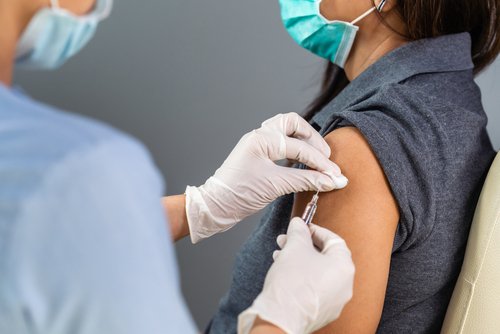Brussels (Brussels Morning) A social media post alleging a lack of evidence in the need for young people to have COVID-19 vaccination has triggered the suspension of a GP in Northern Ireland.
Dr Anne McCloskey expressed concerns in a video about young people being given the COVID-19 vaccine, the BBC reported.
The Health and Social Care Board (HSCB) said it was suspending Dr McCloskey “as a precautionary measure while it undertakes a full investigation”, claiming “patient safety concerns” in the name of the public interest.
McCloskey claimed that vaccinated young people she treated at the weekend were sick because they were “damaged” as a result of being vaccinated, the Journal reported.
“This whole hype has largely been a figment of the media, and the government and their lying scientific advisors and their deceptions,” McCloskey claimed.
According to the Irish Times, Northern Ireland has currently the highest rate of COVID-19 infection in the UK, at 579.5 per 100,000 people.
The Irish National Public Health Emergency Team said the total number of COVID-19 related deaths in Ireland now stands at 5,092 – up 18 since it last reported data on deaths last Wednesday.
Irish GP previously suspended
In April, the Irish GP Dr Gerard Waters was also suspended from the medical register by the High Court of Ireland for refusing to vaccinate his patients against COVID-19, stated the British Medical Journal (BMJ).
Dr Waters also referred to media information about the pandemic as “propaganda” and a “hoax”, the BMJ said.
“From my experience of my patients on the front line since March 2020, I estimate that between 1% and 10% of the Irish population have suffered from a serious traumatic stress disorder, depression and suicidal ideation as a direct result of the government instigated media propaganda and lockdown, which works out at between 48,000 and 480,000 people of this country,” said Dr Waters.
“This must be seen as a national tragedy, if not a massive crime against the Irish people, perhaps the worst since the great famine which was committed by the British government,” he added.
Medical disagreement
Since the onset of the pandemic, there has been disagreement among researchers in medical sciences about the necessity for lockdown measures.
On 19 March 2020, John Ioannidis penned an academic article for the Wiley Online Library, where he analysed the harms of “exaggerated information and non-evidenced” based measures.
Essentially, Ioannidis said that “proper communication and optimal decision-making” are ongoing challenges, as data keeps evolving. The challenge, he went on, is compounded, by exaggerated information that could lead to inappropriate actions.
“It is important to differentiate promptly the true epidemic from an epidemic of false claims and potentially harmful actions,” stated Ioannidis.
“The COVID-19 pandemic is just a reminder about the huge problem of misinformation, disinformation and digital hoaxes,” said Commissioner for Values and Transparency Vera Jourova, last summer.
“This can create confusion and distrust and it can undermine an effective public health response,” added Jourova.




